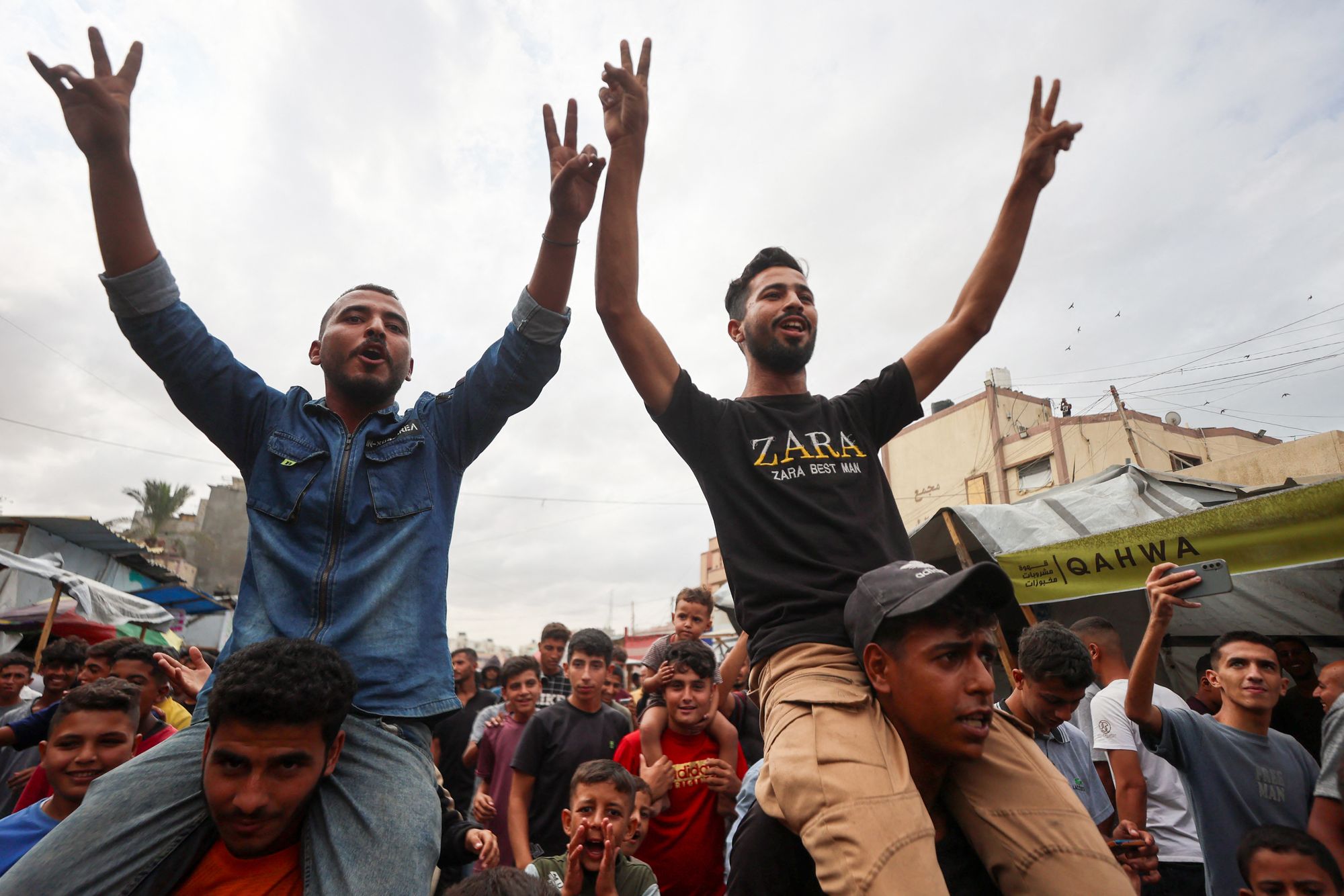A peace plan that Benjamin Netanyahu hails as “a great deal for Israel” and is welcomed by Hamas as “responsible and serious” is an unprecedented achievement. Indeed, a historic one.
There have been so many false dawns in the region over many decades that it is almost impossible to suppress caution about the prospects for an end to the war in Gaza, let alone a wider settlement in Israel-Palestine, but this is clearly a moment for optimism.
The Gaza peace plan, which is to be signed shortly, must be taken seriously as a potentially decisive break in the cycle of violence that has brought so much indescribable suffering to the peoples of the region – and not just since the atrocities of October 7 2023. A war that looked to be unending, and has brought allegations of genocide against Israel, appears to be winding down – and perhaps with it, the wider conflict that has persisted since 1948, and before.
At the very least, the remaining hostages should be released from their torture in the coming days, Palestinian captives in Israel will be freed, the humanitarian aid will flow in to relieve famine conditions, Israeli forces will start to withdraw, and the momentum towards peace and stability will build.
From bitter experience, we know this will not be a smooth and uneventful process, and no peace process is free from setbacks, delays and tension, but this is the first time in years that any realistic path towards the ultimate goal of a sovereign Palestinian nation and state of Israel coexisting can be even vaguely discerned, and in the least propitious of circumstances. Quietly, with no one much seizing upon it, Donald Trump has forced Mr Netanyahu to implicitly accept the emergence of a Palestinian state.

So the plan deserves to succeed, not just because it’s the only option available, but on its own merits. The 20-point plan is logical, tempered by “creative ambiguity”, and does not try to accomplish too much too rapidly. It is balanced and has already created the kind of trust that will be needed to make sure a fragile peace grows into something more lasting.
That, so far as can be judged, has much to do with the work done by diplomats across the region, especially those from Qatar, Egypt and Turkey, and by figures in the background such as Jared Kushner and Sir Tony Blair. It must also be added that it is difficult to imagine that the warring parties could have been brought to this point without the forceful personality of President Trump. Whereas previous presidents have tended to use words and gentle nudging to entice the various sides to start negotiating, Mr Trump has, frankly, used violence and coercion to bend them to his will. Not since Jimmy Carter – who had a very different personality – brokered the peace treaty between Israel and Egypt in 1978 has an American leader enjoyed what seems to be such success in the region, albeit not yet secure.
There is much talk, not least from the president himself, about the Nobel Peace Prize being awarded to him for his efforts. It feels, at this juncture, premature, but if things develop as planned, then there would be an indisputably stronger case for it next year. However, no one should find it an outrage if the committee in Oslo were to take a risk of their own and add Mr Trump’s name to that of previous laureates such as Nelson Mandela, Yasser Arafat, Yitzhak Rabin, Shimon Peres and Mikhail Gorbachev (as well as presidents Theodore Roosevelt, Woodrow Wilson, Carter, and Barack Obama).
Mr Trump is not known for his patience, but he may have made an even more impressive, if improbable, contribution to world peace if he continues in his work as chair of the “Peace Board” and steers Israel and Palestine towards coexistence.
In that context, one important factor in the continuing process is the likelihood that the Netanyahu coalition administration will collapse, because its extreme nationalist elements cannot accept the establishment of any kind of Palestinian entity at all. The Israeli people will soon, and certainly within a year or so, have an opportunity to elect a new government, and one that is much more committed to making Israel secure and ending its international isolation.
As Mr Trump remarked to Mr Netanyahu, “Israel can’t fight the world, Bibi,” and the great prize for Israel would be a comprehensive framework of peace accords, adding Saudi Arabia and others, plus international forces to guarantee its agreed borders. For now, the hostages will be coming home, the Palestinians will be safe from bombings, and those are reasons enough for blessed relief and tearful rejoicing.







